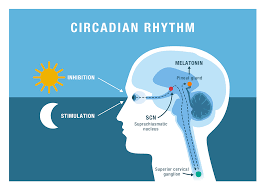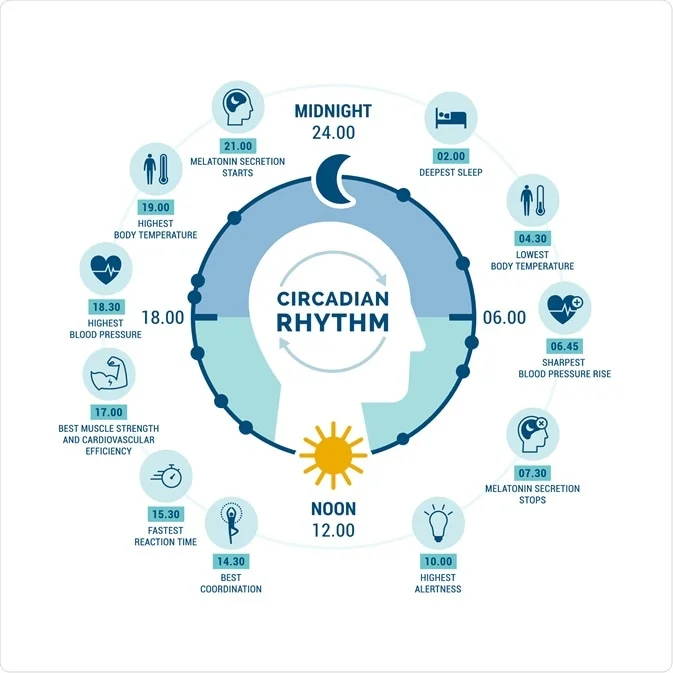
How Melatonin Works?
Melatonin production is closely linked to light exposure. As the day fades and darkness sets in, the pineal gland ramps up melatonin production, signalling to your body that it’s time to relax and prepare for sleep. This is why melatonin levels typically rise in the evening, peak during the night, and gradually fall as morning approaches, helping you wake up.

Why Melatonin Matters for Sleep?
Melatonin’s primary function is to promote sleep by regulating the circadian rhythm, or the internal body clock. This rhythm helps our bodies know when it’s time to sleep and when it’s time to wake up, influencing not only sleep patterns but also other vital bodily functions, like hormone release, digestion, and temperature regulation. When melatonin production is at its peak during the night, it makes it easier for us to fall asleep, enjoy quality rest, and wake up feeling refreshed.

How to Naturally Boost Melatonin Production?
There are several ways to support your body’s natural melatonin production and improve sleep quality:
- Limit Screen Time: Blue light from phones, computers, and televisions can suppress melatonin production, making it harder to fall asleep. Try avoiding screens at least an hour before bed or use blue-light-blocking glasses in the evening.
- Get Sunlight During the Day: Exposure to natural light during the day helps keep your circadian rhythm in sync and can improve melatonin production in the evening.
- Practice a Consistent Bedtime Routine: Going to bed and waking up at the same time each day can help regulate your body’s melatonin production and improve sleep quality.
- Eat Melatonin-Rich Foods: Foods like tart cherries, walnuts, almonds, and tomatoes naturally contain melatonin and can help support melatonin levels.